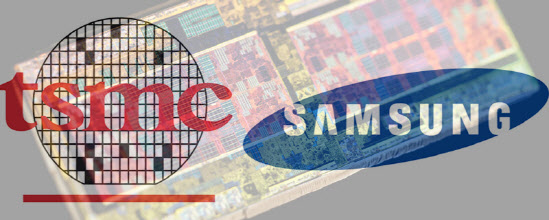|
On the 11th (local time), Bloomberg Communications, led by Germany and France, is promoting a project to build state-of-the-art semiconductor manufacturing technology in the EU with a scale of up to 50 billion euros (approximately 67 trillion won). It is reported that TSMC’s participation is considered as a top priority.
In response, the European Commission (EC) is avoiding an official response. TSMC also declined to answer, and said that it did not contact Samsung Electronics.
Accordingly, an official from the French Ministry of Finance asked the possibility of participation of the two companies at a press briefing held on the same day. “TSMC and Samsung Electronics are global leaders that can manufacture the most innovative processors in the semiconductor field, so they can participate in projects promoted by the EU. I admitted. However, he took a rather cautious position, saying, “Nothing has been decided yet.”
The EU is currently preparing a project for the construction of state-of-the-art semiconductor factories and manufacturing technologies in the region as part of the’EU Major Project of Common Interest (IPCEI)’. IPCEI was launched at the end of 2019 to secure future industrial technology and stabilize the labor market at the EU level, and last year selected the battery field as the first project.
Through this semiconductor project, the EU intends to establish a base for producing semiconductor chips using ultra-fine processes below 10 nanometers (nm) in the region, and a source familiar with this said that “the goal is to ultimately reach 2 nano chips.”
In the EU, there are some semiconductor powerhouses such as NXP, Infineon, and ST Micro, but they mainly produce special semiconductors limited to some limited fields, and even though the production facilities are not properly equipped, they are consigned to production by TSMC or Samsung Electronics. In particular, in the case of high-performance chips used in 5th generation (5G) mobile communications, connected cars, and high-performance computers, it is inevitable to rely on TSMC and Samsung Electronics, which are capable of ultra-fine processing.
Through this project, the EU is setting a goal of producing more than a fifth of the total sales of semiconductor chips and microprocessors produced worldwide. The project is led by Thierry Bretton, who is currently in charge of the industry within the EU Commission, and he is reportedly still contemplating whether to upgrade an existing semiconductor production facility or build a new factory.
In a recent speech, Executive Commissioner Breton lamented that “Europe currently accounts for less than 10% of the world’s semiconductor production.” To achieve the goal (20%), we are working with local semiconductors, automobiles and telecommunications companies. Together, we will launch an alliance soon.” The formation of this alliance is due to be announced by the end of the first quarter.

